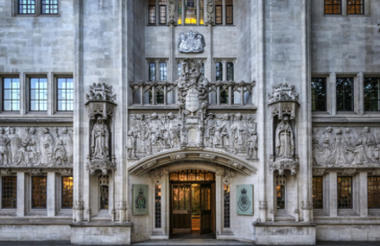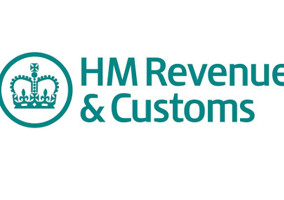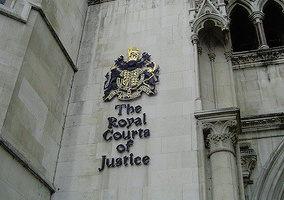Unison has lodged an appeal to the Supreme Court over a Court of Appeal judgment which could have saved the care sector £400m in back-pay to staff.
Mencap and Care England – the representative body for social care providers - went to the Court of Appeal in March to challenge an Employment Tribunal ruling, made in 2016 and upheld at appeal last year.
The original tribunal rulings were in favour of an overnight "sleep-in shift" worker, Clare Tomlinson-Blake, and ruled that Mencap should have paid her the full minimum wage for the shifts.
Tomlinson-Blake had been paid a flat rate of £29.05 for each sleep-in shift, during which she was allowed to sleep but had to remain on-site and be on-call to provide assistance if necessary.
However, the Court of Appeal verdict last month overturned the original decisions related to the Royal Mencap Society v Tomlinson-Blake, heard together with another case, Rampersad v Shannon, ruling instead in favour of Mencap.
But yesterday the trade union Unison, which supported Tomlinson-Blake’s case, lodged an application for permission to appeal to the Supreme Court in the Mencap case.
Speaking to Civil Society News, a spokeswoman for the union said it is likely it will have to wait up to two months for the Supreme Court to decide whether to grant permission to appeal.
Unison's head of legal services, Adam Creme said: "We believe the Court of Appeal got this decision completely wrong and will do everything we can to reverse it."
UNISON has made its application to the Supreme Court for permission to appeal the decision in the #sleepin case. We'll do everything we can to fight for care workers. #awakeonasleepin pic.twitter.com/6pphrNqlR9
— UNISON - the union (@unisontweets) 8 August 2018
Matthew Wort, partner at Anthony Collins solicitors who represented Care England, said he expects the Supreme Court to grant permission and for it then to list the case for a hearing in the latter part of 2019.
Rhidian Hughes, chief executive of the Voluntary Organisations Disability Group, said: "We remain committed to securing a solution that recognises the valuable contribution that social care workers make and at a level that ensures services are sustainably funded."
Effect on sector
The Mencap case could have a large knock-on effect for other social care providers, as many employ sleep-in shift workers and historically paid a flat rate instead of the full minimum wage.
The Unison appeal means the Court of Appeal decision cannot yet be taken to be the final position on whether sleep-in shift workers are entitled to back-payments from employers.
A final position against Mencap could lead to many social care charities having to pay back-pay and penalties to large numbers of staff, which could cost the sector an estimated £400m and result in some organisations going bankrupt.
However, at the moment the Court of Appeal ruling in favour of Mencap represents the current interpretation of the law.
HMRC scheme
Prior to the Court of Appeal ruling, HM Revenue and Customs had undertaken enforcement action against charities, including the creation of its Social Care Compliance Scheme, which involves social care providers assessing their own back-pay liabilities.
Since the Court of Appeal ruling, HMRC has told social care providers they can suspend the self-assessments ahead of further guidance.
Both Mencap and Unison have been lobbying the government to fund higher wages for sleep-in shift staff going forward and, before the Court of Appeal ruling, back-payments.
Petition
Meanwhile, the day after the Court of Appeal ruling, a petition was launched by sleep-in shift worker Dawn Cox in protest at the decision.
It says: "To many support staff/ carers etc, yesterday's ruling was a complete smack in the face, we already feel undervalued, underpaid considering how skilled we are and the sheer amount of specialist training we have to do as part of our job role, deserves a pay that reflects what we do."
The petition has so far received over 1,900 signatures.
Mencap response
On 9 August, Mencap issued a response to Unison's decision to apply for an appeal hearing.
Derek Lewis, Mencap chair, said: "We are disappointed that Unison has chosen to apply to the Supreme Court for permission to appeal, despite the very clear ruling from the Court of Appeal and the refusal by that court of permission to appeal to the Supreme Court.
"This will unnecessarily delay having a final conclusion to this very damaging period of uncertainty and the establishment of clear and appropriate ground rules for the future."
|
Related articles











